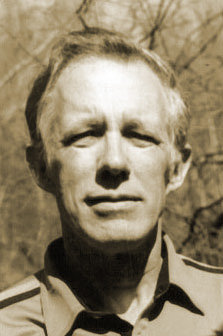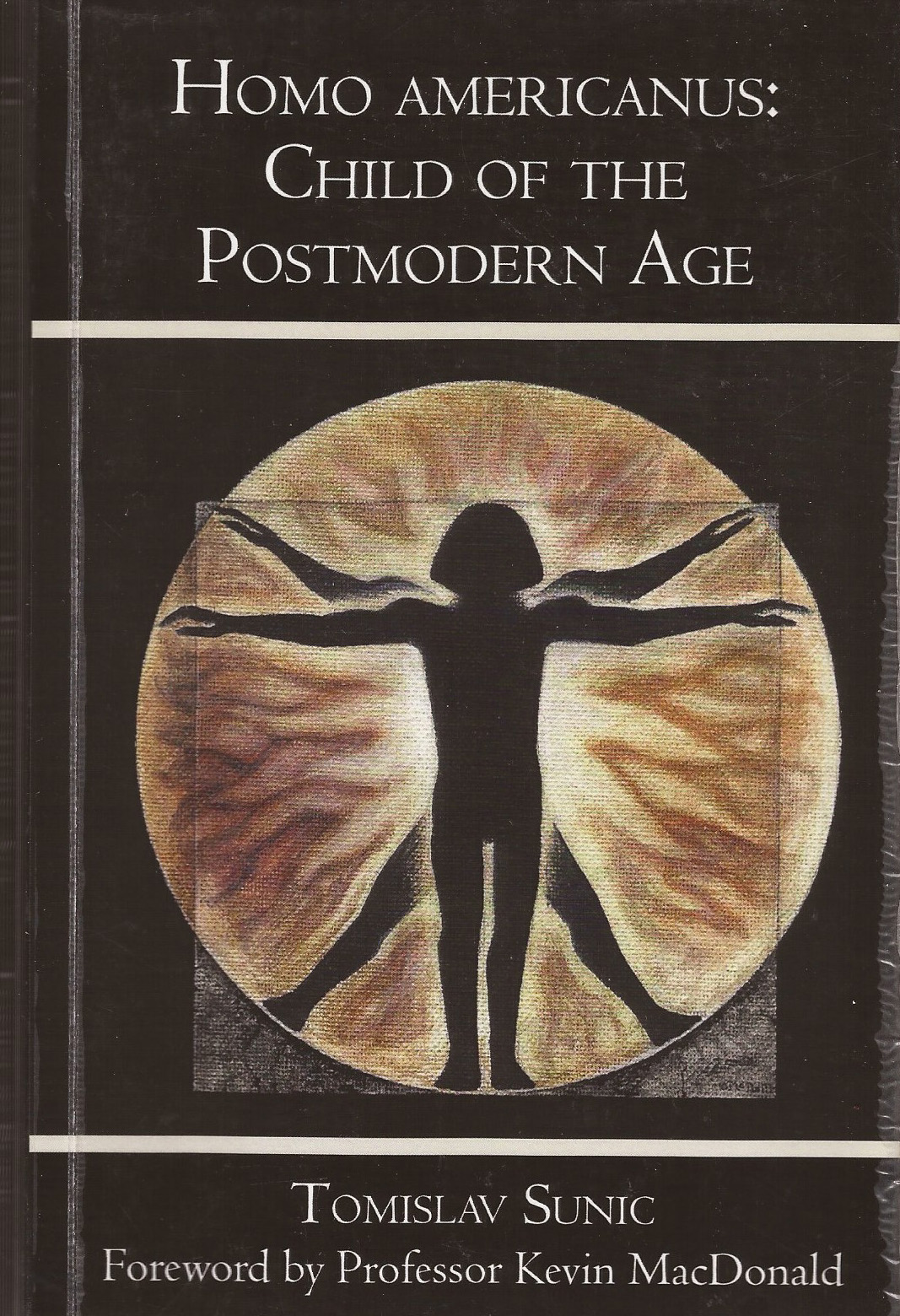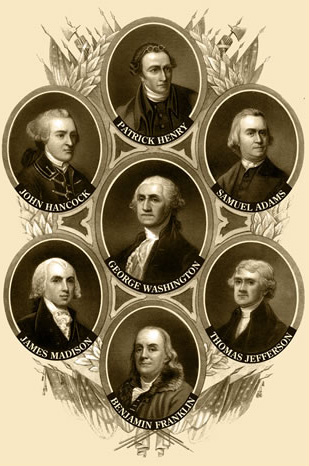by William Pierce

Perhaps you’ll pardon me if I speak to you today in a more personal vein than I usually do. I want to tell you about some personal perceptions of mine, because I believe that many of you who are listening have had similar perceptions. I believe many of you have something in common with me, something very important.
When I was a little boy, 11 or 12 years old, I used to spend my time taking clocks apart, building radios and model airplanes, and doing experiments in a tiny laboratory that I had in my parents’ garage. I used to make little solid-fuel rockets and try them out in the back yard. My ambition was to be a rocket scientist when I grew up. And that’s what I became, at least for a while, until I returned to the university to teach.
The point is that, more than anything else, I was interested in learning what made things tick. I was fascinated by knowledge, by discovery, by the truth. I didn’t care at all what was fashionable: I wanted to know what was true. I was the kind of fellow who sometimes would wear one brown sock and one blue sock, because it really didn’t make any difference to me. And I’m pretty much still that way, except that now my wife makes sure that my socks match.
While I was growing up, of course, I paid some attention to what was happening in the world around me. I knew that there were good people and bad people, smart ones and stupid ones. I knew that the world wasn’t perfect, but I believed that it could be made better. I still believe that.
After I was grown I learned one thing, however, which was really depressing to me for quite a long while. I learned that most of the people around me—not all, but most—were much more interested in what was fashionable than in what was true. When I was a university student, for example, I was very interested in history, and I wanted to discuss the various topics which came up in class with fellow students. Whenever the topic was an ideologically sensitive one, however—the Second World War, for example—I found that it was very difficult to carry on an objective conversation with most people. They would balk whenever the discussion wandered onto unfashionable ground. I would ask the students I was talking with, why is it that almost no member of the general public can tell us how many American GIs died during the war—or how many Germans or how many Poles—but nearly everyone thinks he knows that “six million” Jews died? Why is that? Is it that people believe that only Jews are important? Or is it that they have been brainwashed with propaganda by the media, which are controlled by Jews? And if there is propaganda involved, shouldn’t we be suspicious of its claims?
Well, whenever I would say things like that, the people I was talking with would become uncomfortable. Some would become emotional. They would refuse to continue the discussion.
I’ll give you a more recent example of this sort of thing. A few weeks ago the United States sent a military expedition to Haiti to force the government controlled at that time by General Raoul Cedras to abdicate in favor of Mr. Clinton’s good friend, Jean-Bertrand Aristide. General Cedras was a dictator, we were told by the controlled media—a bad man—and Aristide was a democrat, a good man, a man much like Bill Clinton. We were sending troops to Haiti, the media said, to restore democracy.
Now, it’s true that most Americans weren’t as enthusiastic about sending troops to Haiti to install Aristide as the gang around President Clinton was. But we went along with it. And if you watch the television news coverage of the military occupation, you are led to believe that our soldiers are enthusiastic about their assignment. They are doing a noble thing, they believe, giving Haiti back to Aristide and restoring democracy.
Now, the fact is that Mr. Aristide is a Communist, and besides that a much worse thug and terrorist than General Cedras ever was. In 1991, when Aristide was the top dog in Haiti, he ruled by terror and murder. He killed his opponents with burning tires, “necklacing” them, as the Blacks call it, before General Cedras booted him out of the presidential palace. It is difficult to imagine a more despicable criminal than Jean-Bertrand Aristide as the ruler of a country. And our government is backing him. Our troops are keeping him in power and taking guns away from Haitians who oppose him.
Isn’t that amazing?
But just try discussing that with the average U.S. voter. He doesn’t want to talk about it. It’s unfashionable. About as far as the average American will go is admitting that what goes on in Haiti isn’t our business, and that we should let the Haitians run their own affairs.
Some Americans will say that we had to intervene in Haiti because economic conditions were so bad there that we had a flood of Haitian “boat people” coming into this country. That, of course, is sheer nonsense: economic conditions were worse than usual in Haiti before our invasion because the Clinton government had imposed an embargo on the country in an attempt to force General Cedras out. That’s why the Haitians were starving: it was Mr. Clinton’s embargo. But most people don’t want to hear that.
And they don’t want to hear about the fact that Aristide is a Communist and a bloodthirsty terrorist. They prefer to hear that our troops are in Haiti to “restore democracy.” That’s what is fashionable. That’s what it is comfortable to believe.
Now, let me become personal again.
During the past 30 years I’ve noticed this sort of failure of reason over and over again. I’ve seen the government in Washington adopt policies that I was certain were destructive policies, policies that would lead to the loss of our freedom, to the loss of everything that we hold dear. I was appalled, and I would speak out against these policies.
But invariably the controlled media supported the policies, and so the policies were fashionable in the eyes of most people. People who were against the government’s policies were called “racists” by the media. They were called “isolationists.” They were called “haters.” And most people let themselves be bullied by the media. They went along because it was fashionable to go along.
And so there I was, time after time, concerned about trends that I could see developing, concerned about subtle shifts in the propaganda of the controlled media, concerned about changes in government policy. I could see all around me the bad effects of such trends. I could see where these new trends were heading. It was clear. It was obvious. But other people seemed not to notice. It was as if they were oblivious to the destruction of their own world which was going on around them. I felt very frustrated that they refused to see what I saw, that they continued to pretend that things were fine when I knew that we were headed for disaster.
Can you picture that situation? Have you ever felt the way I’ve just described?
I don’t mean to say that I always was right, that I always knew better than everybody else. I can make mistakes, I can make errors of judgment, just like anyone. But when I make a mistake it’s an honest mistake. I don’t deliberately misjudge things in order to be fashionable.
The unfortunate fact is that much more often than not my judgments about the government’s policies have been correct. Policies that I instinctively felt to be wrong have turned out to be so. Trends that analysis and reflection convinced me were degenerative trends have turned out to be so. And I have never hesitated to speak out. I have never hesitated to say, for example, “Hey, everybody, the government’s immigration policy is a disaster. It’s changing the racial character of America. It will destroy everything that’s good about our country if we permit it to continue.” And the controlled media then would turn their hatred against me. They would shriek at me: Racist! White supremacist! Hater!
Or I would say, “Hey, everybody, the reason the crime problem has become so bad during the past 30 years is that we’re subsidizing it. We’re using our taxes to help the minorities, who are responsible for most crime, to breed. We’ve accepted so-called ‘civil rights’ laws which are empowering and protecting the criminal elements.” And the controlled media would shriek at me again: Racist! Hater!
And, of course, I wasn’t being a hater at all. I was simply concerned about the destruction of my country, the destruction of the civilization which my ancestors had built at such great cost, and I was giving voice to my concerns. I was speaking the truth as I saw it, even when the truth wasn’t fashionable.
And I must admit that sometimes I had the very unsettling impression that I was one of a small minority of sane people, and that the majority of the population had fallen under the influence of a gang of lunatics and were letting the lunatics make all of the policies.
I’ve been seeing the quality of education in America fall disastrously year after year, and in response the government has formulated new educational policies which I knew could only make things worse, policies which almost seemed calculated to make things worse. Instead of aiming for quality in the schools, the government ever since the Second World War has been pushing for “equality.” The quality of the educational system goes down, and so the government forces a big dose of “equality” on it. That makes the quality go down even more, and so the government responds with an even bigger dose of forced “equality.” And when I see this I have to pinch myself, I have to say to myself: Are you really the only sane person in this country; are you the only one who can see that this policy of pushing “equality” instead of quality will only make things worse? Are you the only one who still has a grip on reality?
And, of course, I know that I’m not the only one who feels this way. I know that there are many of you who also feel yourselves the only sane people in a world gone mad. I know that there are many of you who still prefer the truth to whatever is fashionable at the moment. Otherwise you wouldn’t be listening to this program.
The problem is that we sane people, we rational people, we people who accept the evidence of our eyes and are able to make comparisons of what we see today with what we saw in the past—we have got to do a better job of sticking together. We have to put up a united front against the lunatics.
And, you know, it can be done. It is possible for the sane minority to get the lunatics back into their cages and then begin repairing the damage they’ve done. It is possible to take the media away from the destructive psychopaths now in control.
I’m given hope by the fact that even the majority of ordinary Americans, the ones who always prefer to be fashionable, finally have overdosed on insanity. The gang of Clintonistas who’ve been running the country into the ground for the last two years have scared them so badly that we had a massive repudiation of them and their policies at the polls recently. Even the trendy air-heads who’ve been tolerating insanity for decades have finally said, “Enough!”
Please don’t think that what I’ve just said means that I’m a Republican. The good thing about the recent elections is not that the Republican Party won; the good thing is that the elections put a party in control of the legislative branch of the government which is different from the party in control of the executive branch. If we’re lucky we’ll have the two parties fighting each other to a standstill for the next two years. We’ll have governmental gridlock, and the government won’t be able to do as much damage as otherwise.
This gives us a little breathing space, a little time to organize ourselves and prepare for battle with the lunatics.
Actually, I’ve used the word “lunatics” loosely in describing those we oppose. The people who control the media and the people in the government who take orders from them aren’t really crazy. They’re evil. Do you understand that? Evil. They’re people committed to the destruction of everything beautiful and noble and decent in the world. We don’t want to put them in a lunatic asylum. We want to hunt them down—every last one of them—and put a final end to their evil.
One of the most interesting results of the recent elections was the rebellion of White Californians against the growing tide of illegal immigrants from Mexico which was swamping their state. That rebellion expressed itself as Proposition 187. The media people and the Clintonistas—and also many Christians who have been infected with the egalitarian madness—are really unhappy about Proposition 187. They’re hinting that those who voted for it are “racists,” that the only reason they want to make things more difficult for illegal aliens is that most of the aliens aren’t White, because they’re Mexicans, mestizos.
And the White voters are responding, “Oh, no, that’s not the reason at all. We’re not racists. We just want to keep our schools and other public facilities from being overwhelmed.”
But, really, for most of them that’s a dishonest response. The whole reason why Proposition 187 was necessary is because the illegal immigrants are non-White. If they were English or Swedish or German they wouldn’t be a problem. They wouldn’t be a threat. Everyone understands that, but most people are afraid to say it. They are afraid of being unfashionable. So they kept smiling and pretending that everything was all right for 50 years, while their country was being ruined by the media and the government. Finally they had too much, and they rebelled by voting for Proposition 187. But they still won’t face the situation squarely and call a spade a spade. They still prefer being fashionable to dealing in the truth.
But, at least—at least—they did rebel. That’s a very good sign indeed. It shows that there are limits to how much the average citizen will let himself be abused. It’s good to know that. I had begun to worry that he would put up with anything rather than risk being called a “racist.”
You know, the trouble with most people is not that they’re stupid. Most people can figure out as well as you and I can that if you give welfare to Blacks, pretty soon you’ll have more Blacks.
They can understand that if you don’t control your borders, pretty soon you’ll have more Mexicans and Haitians in the country.
They can figure out that if you then pass special laws to protect criminals, you’ll have a lot more crime to deal with.
They know that if you begin mixing Blacks and Whites socially, some Whites will begin acting like Blacks, and the average moral tone of White society will decline.
They can understand that if you force White students to go to school with Blacks and then try to maintain the pretense that Blacks are just as capable as Whites, you must lower scholastic standards and thereby keep White students from reaching their full potential.
They know that if you pass so-called “free trade” laws, which allow industries in non-White countries with extremely low wages, countries like China and Mexico, to compete with American industries, pretty soon you’ll bankrupt the American industries and put many Americans out of work. And they can understand that if you permit Jews to get control of the mass media of news and entertainment in your country, and along with that a dominating influence on the political process and government policy, you’re in big trouble. You leave yourself open to all of the aforementioned ills and a whole Pandora’s box of others besides.
They can understand, in other words, that if people permit their government to adopt the policies the American government has adopted during the past 50 years, they will reduce themselves to the condition of the American people today: their civilization in a precipitous decline, their public and private morality in a shambles, their future mortgaged, and an assortment of non-White minorities in the process of foreclosing on that future.
This is something that most of our fellow citizens should be capable of understanding. Instead, they’ve let themselves be persuaded, primarily by the controlled media, that they should ignore their own reason and pretend that everything is A-OK.
Or, if they are so fed up with conditions that they just can’t pretend any longer that there’s nothing wrong, they still won’t face the facts squarely and accept the obvious answers, because they don’t want to be racists. And so they pretend that a switch from the Democrats to the Republicans will fix everything.
But, you know, somebody has to be willing to announce the fact that the emperor is naked. Even if it’s not polite. Even if it hurts a lot of people’s feelings. Even if everyone else is pretending that the emperor’s new suit is the very height of fashion, someone has to come right out and say, “Hey, momma, look! The man has no clothes on!”
Not just me. A lot of us have to say that. A lot of us have to bear witness to the plain, unvarnished truth. It’s important. Much more than the state of our economy and the quality of our schools and the crime problem depends on it. In the long run, everything depends on our preferring what is true to what is fashionable—preferring it enough to speak out for it.
I don’t expect everyone to do that. I know that most people will continue being the way they always have been. But it doesn’t take everyone in order to make a difference. It only takes a few. It only took one small boy to open everyone’s eyes to the emperor’s foolishness—one small boy to persuade all the townspeople that they really were seeing what they thought they were seeing.
So I’m counting on those of you who occasionally wear mismatched socks. I’m counting on you to say, “By god, I am right. The government and the media are wrong. And the right thing for me to do is to speak up now, regardless of whose feelings I hurt.” You do that—you keep looking at the world with open eyes and not being afraid to come to your own conclusions about what’s good and what’s bad—and you tell people about what you see.
You tell them, and many of them will open their eyes and look too. Don’t let the controlled media intimidate you. Don’t let the government push you around. We’re the ones who are right, not them.
You stand with me, and be honest with me, and speak out with me, and together we’ll begin pushing back some of the evil which has been taking over our world. We’ll begin building a better world together.
I’m counting on you. Thanks for listening.
January, 1995









